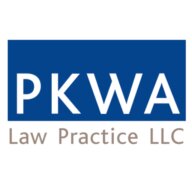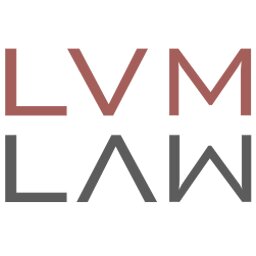Best Reinsurance Lawyers in Singapore
Share your needs with us, get contacted by law firms.
Free. Takes 2 min.
Or refine your search by selecting a city:
List of the best lawyers in Singapore
About Reinsurance Law in Singapore
Reinsurance is a critical component of the insurance market in Singapore, providing insurance companies with a way to mitigate risk by transferring portions of their risk portfolios to other parties. This practice allows insurers to remain financially stable and continue offering insurance coverage, even in times of substantial claims. Singapore, being a significant financial hub in Asia, has a well-developed reinsurance market supported by clear regulations and a conducive business environment.
Why You May Need a Lawyer
People may require legal assistance in the field of reinsurance for various reasons. Common situations include drafting and reviewing reinsurance contracts, resolving disputes arising from reinsurance agreements, handling claims management issues, and ensuring compliance with local regulatory requirements. Legal expertise is beneficial in navigating complex reinsurance arrangements and ensuring that agreements are enforceable and equitable.
Local Laws Overview
The reinsurance sector in Singapore is governed by several key laws and regulations. The Monetary Authority of Singapore (MAS) is the primary regulatory body overseeing the reinsurance industry. Key regulations include the Insurance Act, which sets out the legal framework for insurance and reinsurance operations, and the Risk-Based Capital Framework, determining the capital requirements for insurers to ensure solvency. Additionally, the Financial Advisers Act and the Securities and Futures Act may also apply, depending on the specific transactions involved.
Frequently Asked Questions
What is the role of a reinsurer in Singapore?
A reinsurer provides financial protection to insurance companies by assuming a portion of the risk of insurance policies issued by those companies. This helps insurers manage their risk exposure and maintain business stability.
How are reinsurance contracts structured?
Reinsurance contracts typically involve either proportional or non-proportional agreements. Proportional reinsurance means the reinsurer receives a fixed percentage of policy premiums and covers the same percentage of claims, whereas non-proportional reinsurance covers losses above a certain threshold.
Do I need legal advice for a reinsurance claim in Singapore?
While not always necessary, legal advice can be highly beneficial in navigating the complexities of reinsurance claims, ensuring the claims process is handled properly, and resolving disputes efficiently.
What is the impact of the Risk-Based Capital Framework on reinsurance?
The Risk-Based Capital Framework affects reinsurance by setting capital adequacy standards, which help ensure that insurance companies maintain sufficient capital to cover their risks, including those transferred through reinsurance.
How does the regulatory environment in Singapore affect reinsurance?
Singapore's regulatory environment is stringent and well-structured, providing a stable platform for reinsurance activities. The MAS oversees compliance with relevant laws to protect policyholders and maintain industry integrity.
Can foreign reinsurers operate in Singapore?
Yes, foreign reinsurers can operate in Singapore, but they must comply with MAS regulations and may be required to establish a branch or subsidiary in the country.
What is retrocession in reinsurance?
Retrocession is a practice where a reinsurer transfers portions of the risk it has assumed to other reinsurers. This allows the primary reinsurer to manage its risk exposure more effectively.
How do reinsurance disputes typically get resolved in Singapore?
Reinsurance disputes can be resolved through negotiation, mediation, arbitration, or litigation. The choice of method depends on the terms of the reinsurance contract and the preferences of the parties involved.
What are the common types of reinsurance contracts in Singapore?
Common types include treaty reinsurance, where the reinsurer covers all policies within a defined category, and facultative reinsurance, which is a one-off agreement for a particular insurance policy or risk.
How can I ensure my reinsurance contract is legally sound?
Engaging a lawyer who specializes in reinsurance can be crucial for reviewing contract terms, ensuring compliance with regulatory requirements, and protecting your interests in the agreement.
Additional Resources
For further information on reinsurance in Singapore, several organizations and resources can be helpful, such as the Monetary Authority of Singapore (MAS), Singapore Reinsurers' Association (SRA), and legal firms specializing in insurance and reinsurance law. These entities provide valuable industry insights, guidance, and represent a reliable source of regulatory updates.
Next Steps
If you require legal assistance in the field of reinsurance, it is advisable to engage a lawyer with expertise in insurance and reinsurance law. They can assist in assessing your situation, providing tailored advice, and guiding you through any necessary legal proceedings. Start by researching legal professionals or firms with a strong track record in reinsurance cases and schedule consultations to discuss your specific needs and concerns.
Lawzana helps you find the best lawyers and law firms in Singapore through a curated and pre-screened list of qualified legal professionals. Our platform offers rankings and detailed profiles of attorneys and law firms, allowing you to compare based on practice areas, including Reinsurance, experience, and client feedback.
Each profile includes a description of the firm's areas of practice, client reviews, team members and partners, year of establishment, spoken languages, office locations, contact information, social media presence, and any published articles or resources. Most firms on our platform speak English and are experienced in both local and international legal matters.
Get a quote from top-rated law firms in Singapore — quickly, securely, and without unnecessary hassle.
Disclaimer:
The information provided on this page is for general informational purposes only and does not constitute legal advice. While we strive to ensure the accuracy and relevance of the content, legal information may change over time, and interpretations of the law can vary. You should always consult with a qualified legal professional for advice specific to your situation.
We disclaim all liability for actions taken or not taken based on the content of this page. If you believe any information is incorrect or outdated, please contact us, and we will review and update it where appropriate.
Browse reinsurance law firms by city in Singapore
Refine your search by selecting a city.














